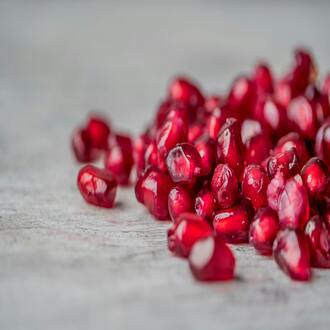Transcription Vitamins a and d
Vitamins A and D belong to the group of fat-soluble vitamins, which as we said in the previous presentation are so called because they dissolve in oils and fats; therefore, to guarantee the assimilation of sufficient quantities of fat-soluble vitamins, we have to include in the diet sufficient quantities of healthy fats, since if there are deficits of fats in the organism, there will also be deficits of fat-soluble vitamins.
The liposoluble vitamins can be stored in the liver and in the adipose tissue for their later use, for that reason after a good provisioning the organism can subsist a period of time without its contribution. Let us now look at some more specific aspects of vitamins A and D.
Vitamin A (retinol or carotene)
Vitamin A is a group of related nutritional organic compounds including retinol and carotenes:
- Retinol is the active form of vitamin A in animals. It is found in foods of animal origin, such as liver, egg yolks, fatty dairy products, and fish liver oil. Most of these foods, because of their high fat content, are not optimal for fitness-oriented diets.
- Carotenes (provitamin A) are found in plant foods and can be converted into vitamin A in our body. Therefore, consuming products rich in carotenes is an indirect way to obtain vitamin A. Some foods rich in carotenes are carrots, cooked spinach, sweet potatoes, parsley, pumpkins and soybean oil. All of these foods, seasoned with small amounts of healthy vegetable oils, are optimal for inclusion in fitness-oriented diets.
Functions of vitamin A
- It intervenes in the protection and maintenance of epithelial tissue (skin, respiratory mucous membranes, nails, etc.). This function should be taken into consideration by bodybuilders to achieve adequate skin care, an aspect of utmost importance in competitions or exhibitions.
- Carotenes (provitamin A) are a powerful antioxidant. For this reason they are highly recommended in the diet of all athletes to attenuate the possible oxidative damage generated by intense exercise.
- Contributes to the growth and maintenance of bones.
- It is essential for vision, and the maintenance of the immune system.
- It participates in the elaboration of enzymes in the liver and of sexual and adrenal hormones.
Recommended Intake
The recommended intake for women is 800 ug/day (micrograms/day), and for men 1000 ug/day (micrograms/day). There is no evidence that taking additional amounts of vitamin A increases the performance of athletes in general.
Consequences of vitamin A deficiencies in the body:
- It can cause from difficulty in night vision, to total loss of vision.
- It causes retardation of body growth in childhood and adolescence.
- It can increase the frequency of respiratory and gastrointestinal infections.
Consequences of excesses:
- Excessive consumption of vitamin A (retinol) supplements can cause severe reactions that can manifest in different ways, including dry skin, visual disturbances, bone pain and headache.
- Very high intakes of foods of vegetable origin rich in carotenes (carrots, sweet potatoes, pumpkins, etc.), can color the mucous membranes, appearing a yellowish tone in the skin of the hands and ears, which disappears quickly if we reduce the consumption of these foods. These reactions are not harmful to health.
Vitamin D (cholecalciferol)
Vitamin D can be obtained naturally by the body in two ways:
- By cutaneous synthesis mediated by ultraviolet radiation from the sun. Exposure to the sun's rays for 15 minutes daily is sufficient to cover vitamin D needs. This should be the main source for the general population, however, for people who for reasons of work or age do not get enough sun, this route may be insufficient.
- Through the diet. Foods rich in vitamin D are: fresh or frozen fish (sardines, anchovies, tuna, bonito, etc.), fatty dairy products (especially fatty cheeses), eggs and mushrooms. Cod oil is a concentrated source of vitamin D.
Functions of vitamin D
Vitamin D has some functions that can influence both the health and sports performance of fitness athletes. For example:
- It promotes bone mineralization as it promotes the absorption of calcium and phosphorus in the intestine, as well as their renal reabsorption.
- It participates in the anabolism of muscle proteins, which favors the increase of muscle mass and avoids its d
vitamins d

![Is the online course compatible with different languages? [indicate the main language]](/images/postDuplicados/Is_the_online_course_compatible_with_different_languages_indicate_the_main_language.webp)


